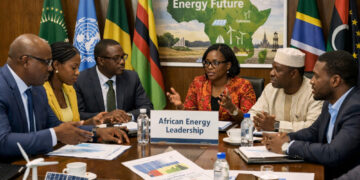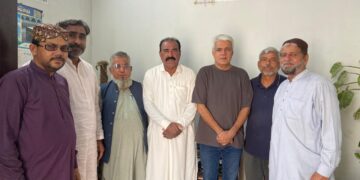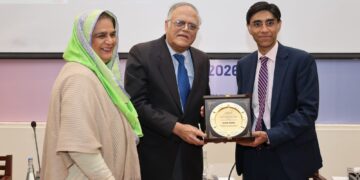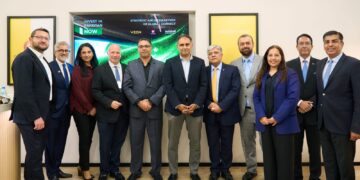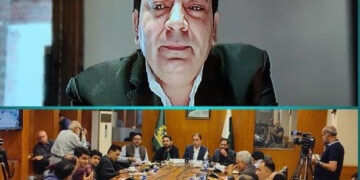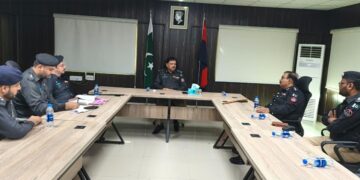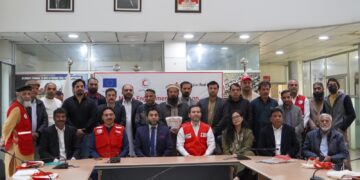Karachi, Pakistan – December 3, 2024: The Institute of Business Administration (IBA) Karachi hosted the 4th World Islamic Finance Forum (WIFF) at Mövenpick Hotel, Karachi, under the theme “Islamic Finance: Innovation, Climate Finance & Sustainable Growth.” The event brought together prominent policymakers, industry leaders, and academicians to discuss the critical role of Islamic finance in shaping a sustainable and ethical global economy.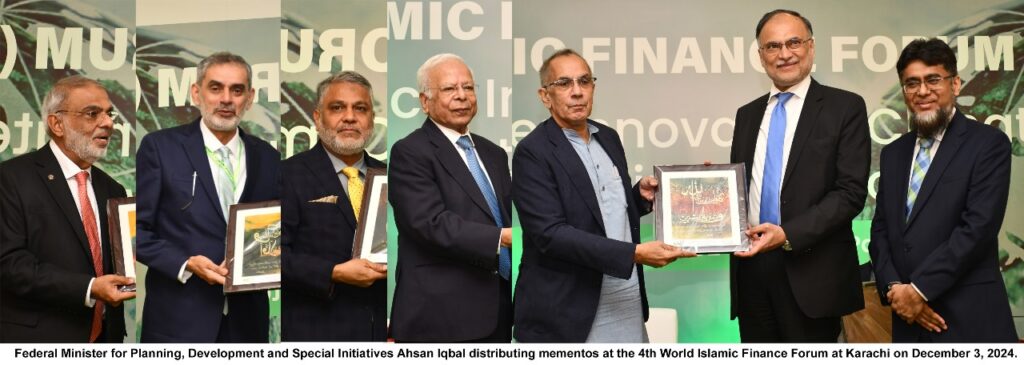

Key attendees included Dr. Akbar Zaidi, Executive Director of IBA Karachi; Irfan Siddiqui, CEO of Meezan Bank; Akif Saeed, Chairman SECP; Saim Ullah, Deputy Governor, State Bank of Pakistan; and Federal Minister for Planning, Development, and Special Initiatives, Ahsan Iqbal, as the special guest of the event.
The forum marked a significant milestone with the signing of a Memorandum of Understanding (MoU) between Dr. Akbar Zaidi and Irfan Siddiqui, CEO of Meezan Bank, to foster collaboration in research, training, and capacity-building for advancing Islamic finance.

Saim Ullah, Deputy Governor SBP, discussed the central bank’s initiatives to expand Islamic finance. “Islamic finance provides a disciplined framework by identifying and eliminating irresponsible financial practices,” he stated. He highlighted that SBP’s Standing Committee on Transformation is advancing compliance and has requested transformation plans from private banks. “Transitioning public debt into Shariah-compliant instruments remains a significant challenge,” he added.
Akif Saeed, Chairman SECP, called for innovation in Islamic finance. “The integration of fintech with Islamic finance principles offers unparalleled opportunities for expanding financial inclusion and addressing global sustainability challenges,” he remarked.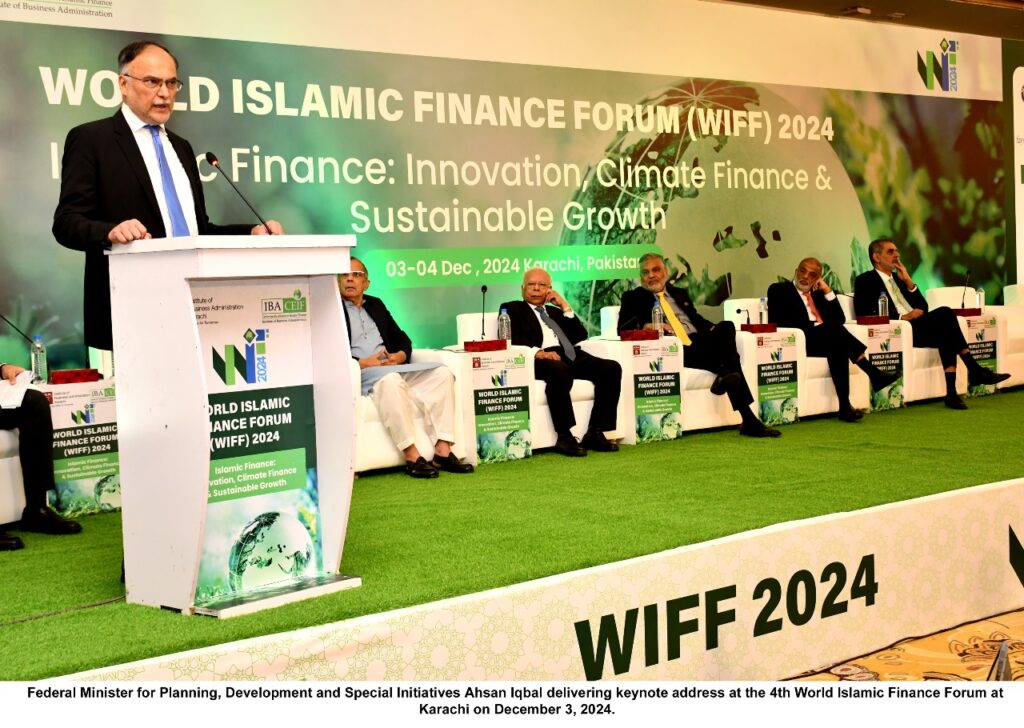

Federal Minister Ahsan Iqbal addressed the forum, emphasizing Pakistan’s commitment to climate action and sustainable growth. “For Pakistan, climate action is not a choice but an imperative. Ranked among the top 10 nations most vulnerable to climate change, the devastating floods of 2022 caused economic losses exceeding $30 billion,” he stated.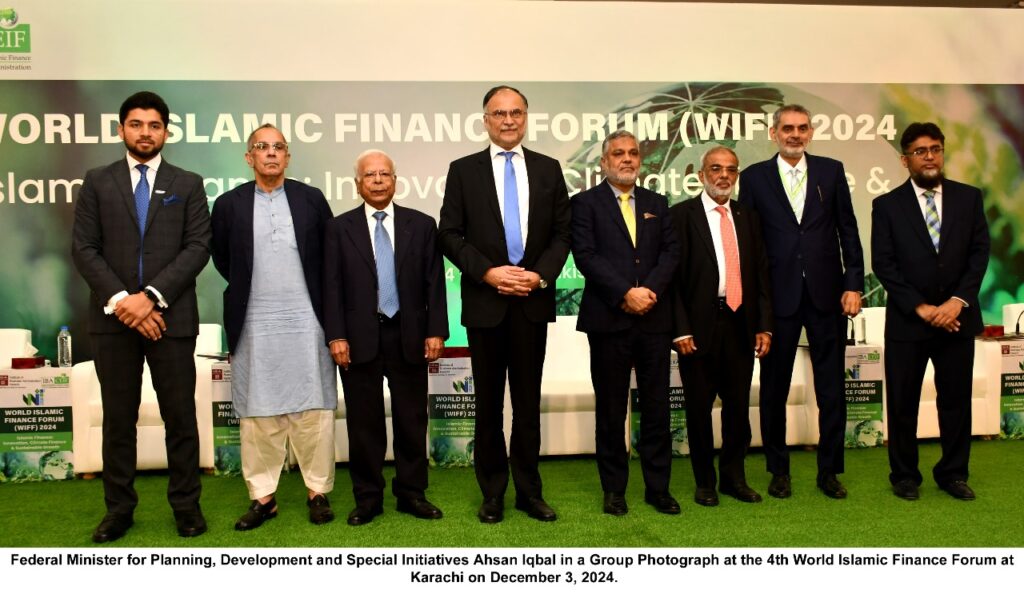

The Minister outlined key governmental initiatives:
Issuance of Pakistan’s First Green Sukuk worth $500 million, funding renewable energy projects and reducing reliance on fossil fuels.
Targeting a 60% renewable energy share by 2030, aligned with the UN Sustainable Development Goals (SDGs).
He further emphasized the critical role of economic stability. “Peace, political stability, policy consistency, and continuous reforms are the four pillars of a successful nation,” he said. Highlighting Pakistan’s economic recovery, he noted the Pakistan Stock Exchange (PSX) surpassing the 100,000 milestone, a testament to investor confidence. He added, “Certain elements in the country don’t want economic and political stability, and as soon as PSX crossed the milestone, they marched towards Islamabad to cause instability and chaos. This resulted in a hit on PSX as it fell by 3,500 points.”
He further stated, “We are grateful that the public supported us in 2022 when we had to take tough measures to meet IMF conditions which the previous government didn’t fulfill. Now, the people of Pakistan are happy as we have avoided calls of bankruptcy and have saved ourselves from becoming an example like Sri Lanka.”
Citing Allama Iqbal, he added, “When Allama Iqbal wrote 17 letters to Muhammad Ali Jinnah, he emphasized that without freedom, the Muslims of the subcontinent could not achieve economic stability and financial autonomy.” Reflecting on global challenges, the Federal Minister remarked, “Why do we feel helpless in stopping the bloodshed caused by Israel’s atrocities? Israel is economically stronger than 52 Muslim nations combined and is killing thousands of innocent lives with impunity. Economic strength is a key to ensuring political influence and safeguarding human rights.”
Concluding his address, the Federal Minister posed a critical question: “What are we leaving for the upcoming generation? We must focus on policy consistency, as envisioned in Vision 2023, until sudden disruptions and political turmoil changed the trajectory.”
Dr. Akbar Zaidi, Executive Director of IBA Karachi, concluded the forum by reiterating its importance. “WIFF serves as a vital platform to demonstrate how Islamic finance can bridge ethical principles with innovative solutions, paving the way for sustainable development globally,” he said.
The forum spotlighted Green Sukuk, Islamic fintech, and regulatory reforms as transformative tools for driving sustainable growth and addressing pressing global challenges.







